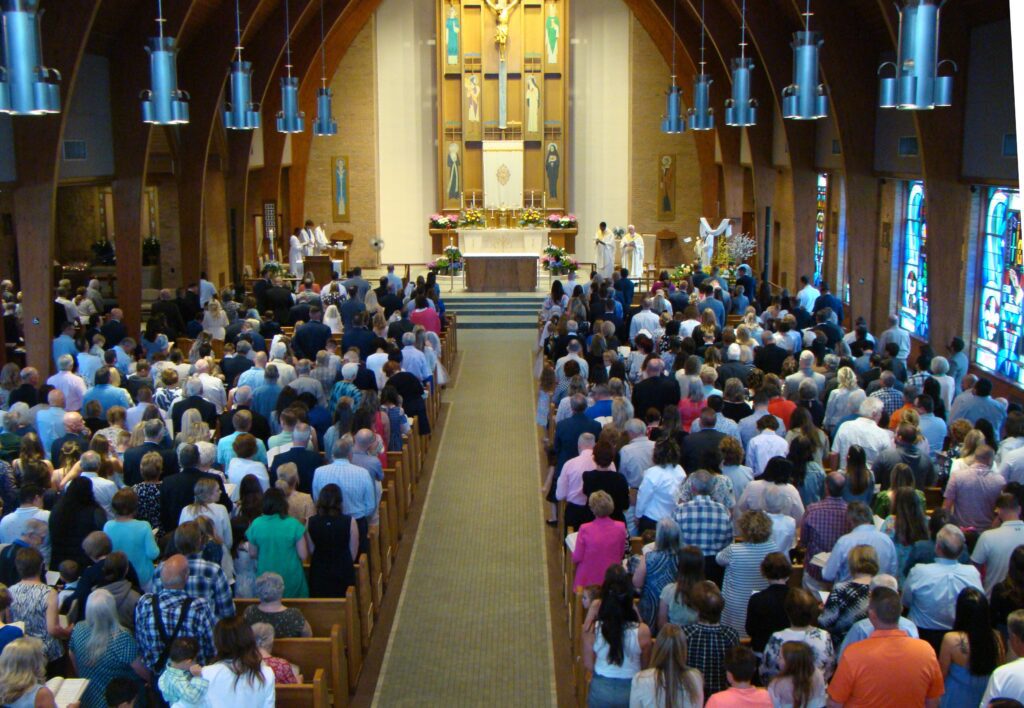Becoming Catholic
A person is brought into full communion with the Catholic Church through reception of the three Sacraments of Christian initiation—Baptism, Confirmation, and the Holy Eucharist.

A person is brought into full communion with the Catholic Church through reception of the three Sacraments of Christian initiation—Baptism, Confirmation, and the Holy Eucharist. A person who is baptized in the Catholic Church becomes a Catholic at that moment. Their initiation is deepened later through the Sacraments of the Eucharist and Confirmation, but one becomes a Catholic at baptism. This is true both for children who are baptized Catholic (and receive the other two sacraments later) and for adults who are baptized, confirmed, and receive the Eucharist at the same time.
Those who have been validly baptized outside the Catholic Church become Catholics by making a profession of the Catholic faith and being formally received into the Church. This is normally followed immediately by Confirmation and the Eucharist. Preparation for this is necessary. The amount and the form of this preparation depends on the individual’s circumstance. The most basic division in the kind of preparation that is needed is whether the individual is unbaptized or if they have already become Christian through baptism in a different denomination.
For adults and children who have reached the age of reason (age seven), entrance into the Church is governed by the Rite of Christian Initiation for Adults (RCIA). Please visit our Faith Formation page for more information about the RCIA at St. Joseph Church.


